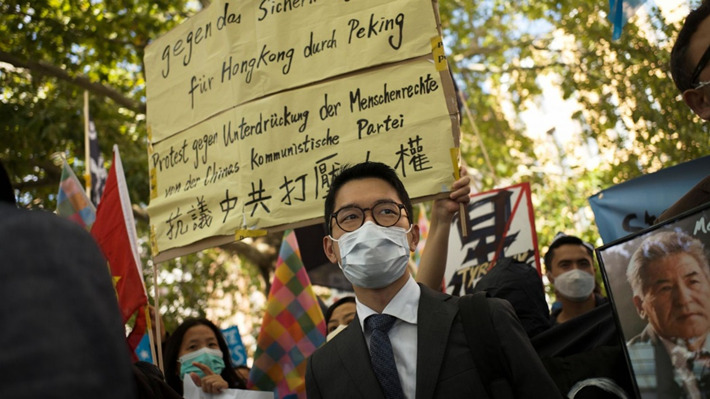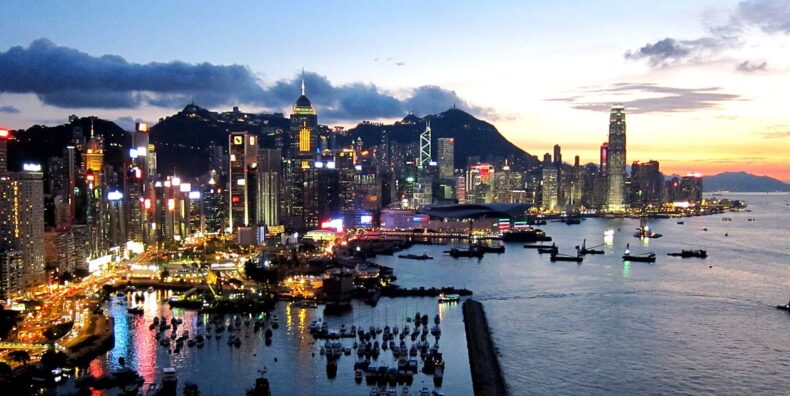Hong Kong police are offering bounties worth HK $1,000,000 ($127,650) to anyone who gives them the information about the 8 democracy activists. The self-exiled pro-democracy activists are to be arrested as they have violated the harsh National Security Law.
Former pro-democracy lawmakers Nathan Law, Ted hui and Dennis Kwok, lawyer Kevin Yam, unionist Mung Siu-tat, and activists Finn Lau, Anna Kwok, and Elmer Yuen are the eight that the police are wishing to arrest as they have announced at a news conference. The rewards are the first for violating the legislation since it was imposed in June 2020 and it asserts global jurisdiction over cases involving subversion, collusion, secession, foreign forces and terrorism.
Lawyer Yam, former legislator Dennis Kwok and activists Yeun, Lau, and Anna are accused of allegedly calling for sanctions against Hong Kong officials.

Currently living in Britain, law is also accused of foreign collusion and secession for allegedly calling sanctions and the city’s separation from China in meetings, open letters, petitions, interviews etc.
The activists have spread all across the globe and are currently residing in Britain, Canada, United States and Australia.
Steven Li- the chief superintendent of the police’s National Security Department- assured that if they remained overseas, they will not be able to arrest them but he further told them that surrendering and coming back to Hong Kong would allow a reduction on their sentences.
The superintendent also said that the new charges and rewards were not a tool to create fear but they are merely present to enforce the law. After citing the articles with which the police have extraterritorial jurisdiction, he informed that they would pursue people overseas who e4ndanger Hong Kong’s national security.
Hong Kong is a semi-autonomous city which has been under Beijing’s scrutiny after the months of political issues in 2019. The authorities tracked down 260 people from ages 15 to 90, many of whom are pro-democracy figures, arrested under the National Security Law. HK’s political system has also undergone a change to make sure the “patriots” only hold office.
China imposed the national security law as there was a rise of anti-government protests in Hong Kong. It has used the law and legislation to arrest journalists, democracy activists and lawmakers.
The National Security Law has eroded many legal boundaries that existed between Hong Kong and China allowing the latter to hold individuals across the world accountable for their actions. When the United Kingdom transferred control of Hong Kong to China in 1997, they agreed to maintain a method of “one country, two systems.”
The UK Foreign Secretary James Cleverly stated that the country will not tolerate any attempts made by China to intimidate the few who arrived there out of the 8 who have fled from the country. They even suggested them to not travel to countries that have treaties with China as they believe China’s extraterritorial law is too authoritarian and suppresses Hong Kong’s freedom.













